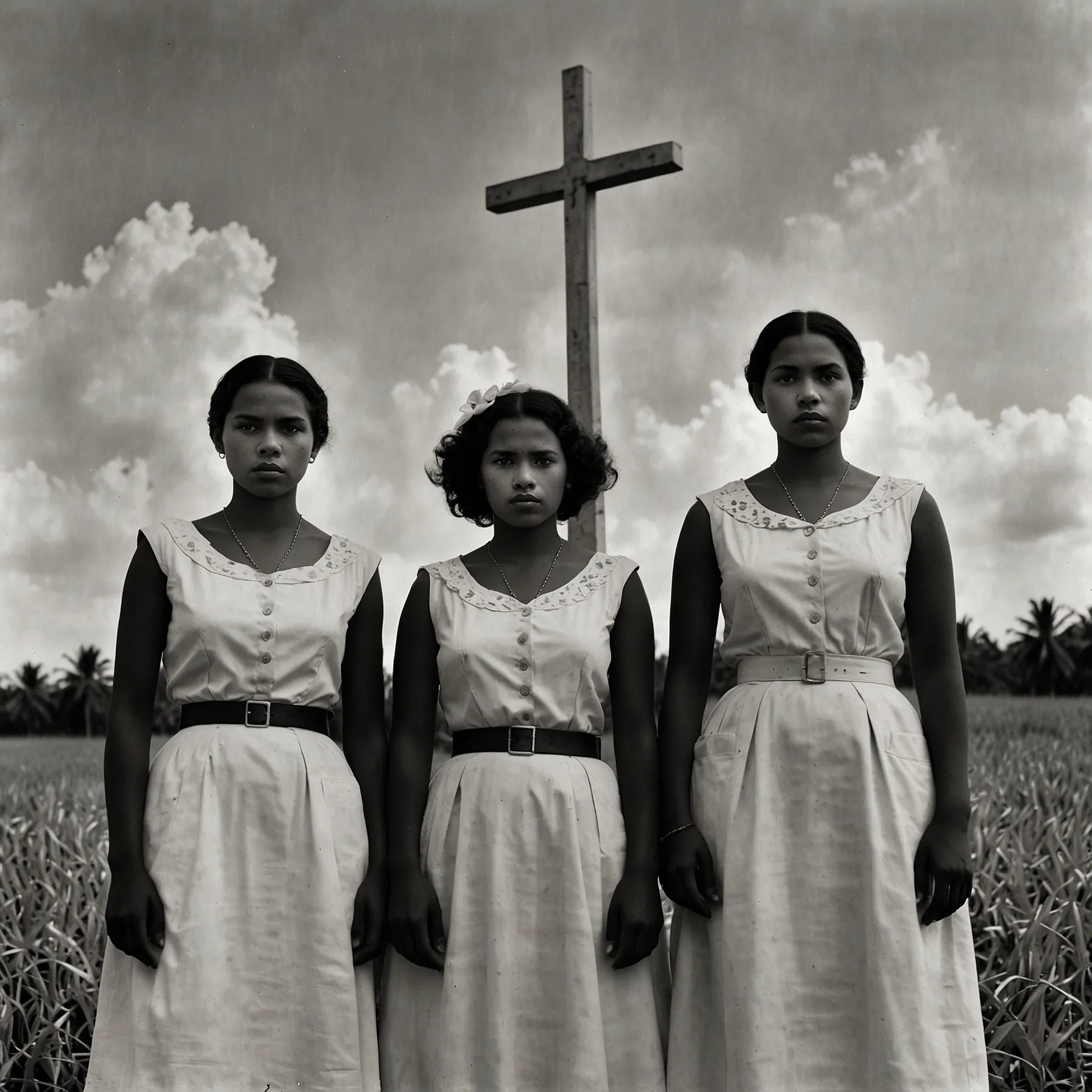From 1930 to 1961, Rafael Trujillo’s dictatorship in the Dominican Republic saw thousands imprisoned, tortured, and murdered. Enter the Mirabal sisters, three women whose bravery and revolutionary spirit would resonate far beyond their tragically short lives.
Trujillo climbed the military ranks during the U.S. occupation and seized power in 1930 through a coup and a rigged election. He built a system that enriched himself and his allies, with his family controlling a significant chunk of the nation’s economy. Think monopolies over salt, beef, and newspapers. Trujillo even renamed the capital after himself and demanded his portrait in every home. His rule included mass atrocities, such as the massacre of thousands of Haitians, with a secret police force to crush dissent both locally and abroad.
The Mirabal sisters—Patria, Dedé, Minerva, and María Teresa—were raised in a middle-class family in the countryside. Their parents sent them to one of the Dominican Republic’s best boarding schools. There, Minerva befriended a classmate whose relative was killed by Trujillo’s regime, sparking her interest in opposition. While Dedé stayed out of politics, Minerva, Patria, and María Teresa dove headfirst into the struggle for justice.
In 1949, the Mirabal family got invited to one of Trujillo’s infamous parties, notorious for his predatory behavior towards young women. Minerva ended up dancing with him but rejected his advances, leading to dire consequences. Their father was imprisoned, and family property was seized. Minerva graduated with honors as one of the country’s first female law graduates but was barred from practicing by Trujillo himself.
Minerva married Manolo Tavárez Justo in 1955 and, inspired by other Latin American revolutions, they prepared for a rebellion. They formed the June 14th movement, known as Las Mariposas (the Butterflies), organizing secret meetings and distributing pamphlets exposing Trujillo’s crimes. In 1960, they called for a nationwide uprising but were soon on Trujillo’s radar. Minerva and María Teresa were arrested, while Patria found inventive ways to communicate with imprisoned rebels.
Fearing loss of support from the U.S. and the Church, Trujillo released the sisters but kept their husbands jailed. Yet, the Mirabal sisters continued to pose a threat to his regime. On November 25th, as they returned from visiting their imprisoned husbands, Trujillo’s men intercepted their car. The sisters and their driver were brutally murdered, their deaths staged as a car accident. Patria was 36, Minerva 33, and María Teresa only 25.
Trujillo’s attempt to silence them failed monumental. The public saw through the ruse, and international condemnation followed. The U.S. closed its Dominican embassy and secretly backed anti-Trujillo efforts. By mid-1961, Trujillo was assassinated by former members of his own military, ending his bloody reign.
Thanks to their family, especially Dedé, who survived, the Mirabal sisters became enduring symbols of resistance. Monuments and honors now commemorate their fight, and in 1999, the United Nations declared November 25th as the International Day for the Elimination of Violence Against Women. Their legacy continues to inspire the fight for justice worldwide.






